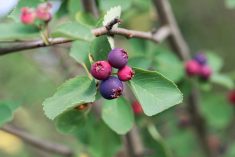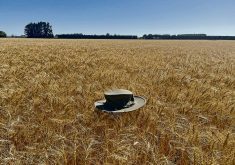(Resource News International) — Cash bids for flaxseed in Western Canada continue to remain depressed overall, but there have been opportunities where values have increased, albeit temporarily.
“There were some old-crop flaxseed cash bids along the Manitoba/Saskatchewan border that were reportedly in the $9 a bushel area, f.o.b. April/May,” according to Mike Jubinville, a market analyst with ProFarmer Canada. The opportunity, however, was expected to be limited.
He felt the pricing opportunity was likely covering some nearby export demand and once the business had been covered, values would quickly revert back to their depressed levels.
Read Also

CBOT Weekly: Expect sideways trading for now
Look for trading of soybeans, corn and wheat at the Chicago Board of Trade remain sideways for the balance of January, perhaps longer, said Ryan Ettner, broker with Allendale Inc. in McHenry, Ill.
Jubinville also acknowledged that producers in Western Canada continue to remain hesitant to commit to flaxseed this spring in view of the uncertain European prospects.
“There have been a few Canadian shipments of flaxseed quietly getting through to Europe as well as to other destinations, but there continues to be no guarantees yet,” he said.
It may take some drastic measures on the part of Canadian producers in order to regain the trust of the European Union that Canada’s flaxseed is safe.
“I know producers in Western Canada have been hesitant to buy into this theory of using only certified seed, especially with the extra cost involved and the fact there is no guarantee that the Triffid issue will come to a halt,” he said.
“However, in order to make believers of the European government, maybe one year of only certified seed usage will be enough to open the doors for Canadian flax.”
“Triffid” refers to CDC Triffid, a GM flax variety that bred in Saskatchewan in the 1990s, deregistered in 2001 and never commercialized, at the behest of a flax industry that feared losing market access to Europe if a GM flax were introduced.
Canadian flaxseed imports to Europe were suspended after the discovery by European labs of a genetic marker for Triffid in Canadian flax in July 2009.
Jubinville said the one year of planting only certified flax seed might be considered overkill, but it also may be enough to convince the Europeans that Canada is doing everything in its power to fix the genetically modified seed problem.
“Canada needs to provide the EU government with these kind of assurances,” he said.
Without the European market, he added, Canadian flaxseed bids will only continue to erode.
Cash bids for flaxseed delivered to the elevator in Saskatchewan, based on Prairie Ag Hotwire data, currently range from $8.50 to $8.52 a bushel, in Manitoba around $8.55 a bushel and in Alberta from $7.26 to $8.56.
Cash bids for flaxseed delivered to the elevator in Saskatchewan, based on data from Prairie Ag Hotwire on Jan. 25 for comparison purposes, ranged from $8.35 to $8.70 a bushel in Saskatchewan, in Manitoba around $8.68 and in Alberta from $8.12 to $8.81.














